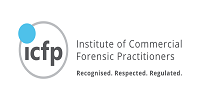HOW TO STAY SAFE
Vishing (Phone Calls)
Scammers phone individuals posing as a representative from an established organisation like a bank, mobile service provider, insurer, retailer, government body or even the police. This is also known as voice phishing or vishing.
The aim is to manipulate individuals into revealing personal or confidential information (ID number, login credentials, card number, bank details, etc.) and then this information is used to defraud the victim.
Scammers also use various tactics to try and get their hands on your hard-earned money or to gain access to systems and accounts you own or may be privy to.
Popular Scenarios
These are some of the tactics used by scammers when phoning potential victims:
- Claiming they are from the fraud department at your bank and that they have detected fraud on your account or that they are following up on a fraud incident, and they need you to verify details.
- That someone has requested a SIM swop on your number and to stop this, you need to provide a one-time pin.
- That there is a problem with your account and your money needs to be moved to another account for safe keeping.
- Some scammers even target people’s life savings by using information they have on you to convince you to invest in something that promises wonderful returns.
- Claiming that they are hosting an online event/ meeting (which supports their scam objective - like an investment opportunity for example) on popular messaging or social media platforms. They send an invite while on the phone with a one-time pin, which they ask you to read back to them to confirm your participation/ access to the event.
How To Spot It
These are the red flags you should look out for:
- The call is unsolicited. You receive an unexpected call claiming there's fraud, unusual activity, or a problem with your account, intended to manipulate you into acting quickly.
- They pressure you to act quickly. Be wary of a sense of urgency or pressure. Scammers try to rush you into making a decision or acting quickly, often threatening negative consequences if you do not follow their instructions. Like requesting you to click on a link that they send to you while you are on the call with them.
- They ask for confidential information. The person on the call may ask you for personal or confidential information, like your ID number, login credentials, banking details, account information, and PIN. Legitimate organisations will never ask for confidential information like your banking PIN or login.
- They are vague. Scammers will often avoid providing further details or formal contact information or transferring the call to a manager and may become agitated when they are asked for more information.
- Unusual payment methods. They may ask you to make payment via vouchers, cryptocurrency or a link that they will send to you.
- Poor call quality. There may be suspicious background noise, static, or it sounds like an unnatural (robotic) voice, which can indicate a fraudulent call.
What To Do
How do you handle a situation where you are faced with one of these calls?
- Just say goodbye. If you did not expect this call and you do not recognise the number or person, just say goodbye. Do not press any buttons, share one-time-pins, or respond to pop-ups. Just say goodbye and end the call.
- Do not share information. Never give them any personal or financial details over the phone.
- Verify the call. Contact the organisation using the official phone number listed on their website, in your account statement, or through their official channels. Contact the relevant department and confirm that the call request was legitimate.
- Report it. Report the suspicious call to the relevant organisation and/ or authorities. You can also report it to the Yima reporting function below, as well as the Yima scams hotline.
Our Partners
















